- Home
- Michael Connelly
The Night Fire Page 9
The Night Fire Read online
Page 9
“No, that won’t help. If I can’t remember, I can’t remember.”
Ballard detected a tonal change in Talis’s voice. She thought maybe he had just recalled something about the case and he was shutting down.
“Let me pull the book and read it to you,” she said.
“No, honey, I just told you,” Talis said. “I don’t remember the case and I’m kind of busy here.”
“Okay, let me ask you this. Do you remember John Jack Thompson?”
“Sure. Everybody knew John Jack. What’s he got—”
“Did you ever discuss this case with him?”
“Why would we do that?”
“I don’t know. That’s why I’m asking. He ended up with the murder book on this. When he retired he took it home with him—he stole it—and I’m trying to figure out why.”
“You gotta ask him about that, then.”
“I can’t. He died last week and his wife turned in the murder book. Now I have it and I’m trying to figure out why he took it.”
“I’m sorry to hear John Jack is gone, but I can’t help you. I have no idea why he had the book. Maybe he talked to my partner about it, but he never talked to me.”
Ballard instinctively knew that Talis was dissembling. He knew something but wasn’t sharing it. She took one last try at digging it out.
“Detective Talis, are you sure you can’t help me?” she asked. “It sounds to me like you do remember this case. Are you protecting somebody or some secret? You don’t need—”
“Hold it right there, girl,” Talis said, his voice angry. “You’re saying I’m protecting somebody, keeping secrets? Then this is where I say fuck you. Nobody talks to me like that. I gave the department and that city—”
“Detective, I am not trying to insult you.”
“—twenty-five years of my life and I was putting people in jail when you were giving boys blow jobs under the bleachers. You insult me and you insult everything I ever did down there. Goodbye, Detective Ballard.”
Talis disconnected.
Ballard sat there, her face turning red with anger and embarrassment.
“Then fuck you,” she said to the empty room.
She was saved from the moment when she heard her name come from the ceiling speaker. It was Lieutenant Washington requesting her presence in the watch office.
She got up to go.
15
Some calls come with a deep feeling of dread that hits long before any crime scene is viewed or question asked. This was one of those. Lieutenant Washington had sent Ballard out to a house in lower Beachwood Canyon, where a suicide had been reported. Patrol wanted a detective to confirm and sign off on it. The L-T told Ballard that it was a kid.
The house was a block north of Franklin on Van Ness. It was an old Craftsman that looked like its wood siding was being chewed up from the inside out by termites. There were two patrol cars out front and a white van with a blue stripe down the side that belonged to the coroner’s office. Ballard pulled behind it and got out.
Two officers were waiting on the front porch. Ballard had seen them earlier at roll call and knew their names were Willard and Hoskins. They had long-distance looks in their eyes and had been horrified by whatever the scene was inside.
“What have we got?” Ballard asked.
“Eleven-year-old girl hung herself in the bedroom,” Willard said. “It’s a bad scene.”
“Her mother found her when she came home from work around eleven,” Hoskins added.
“Anybody else in the house?” Ballard asked. “Where’s the father?”
“Not here,” Hoskins said. “We don’t know his story.”
Ballard walked past them and opened the front door. Immediately she heard a woman crying. She stepped in and to her right saw a female officer named Robards on a couch next to a woman whose face was buried in her hands as she wept. Ballard nodded to Robards and pointed to the stairway in the front hall. Robards nodded—the body was upstairs.
Ballard went up the stairs and heard a commotion from the open door on the right of the landing. She entered a pink-walled bedroom and saw the body of a girl hanging from a noose made of neckties looped over a crossbeam. On the floor in front of a queen bed was a kicked-over chair that came from a small homework desk. There was urine on the rug beneath the body and the odor of excrement in the room.
An officer named Dautre was in the room, his hands in his pockets to make sure he didn’t touch anything, as well as a forensic criminalist named Potter and two coroner’s investigators whom Ballard did not know. They had stuck a thermometer into the body through an incision to take liver temperature and determine an estimated time of death.
“Ballard,” Dautre said. “This is fucked up. She’s just a girl.”
Ballard had been at death scenes before with Dautre—she had told him the trick of keeping his hands in his pockets—and he had never seemed fazed by what he saw. But he did now. He was of mixed race but his face was blanched nearly white and his eyes were wide. She nodded and started to move in a circle around the room. She didn’t want to look at the dead girl’s face but knew she had to. It was contorted, her eyes slits. Ballard’s gaze moved down the body looking for any sign of a struggle, getting to the fingers last. Many times suicides changed their mind and grappled with the rope or strap around their neck, breaking fingernails or leaving lacerations. There was no sign of this. The girl apparently never wavered in her decision.
The girl was wearing a plaid green skirt and a white blouse. There was an insignia from a private school on the blouse’s pocket. She was overweight by about thirty pounds and Ballard wondered if she had been bullied because of it.
She also noticed that two men’s ties had been knotted together to loop over the crossbeam and make the noose the girl had put around her neck. Ballard assumed that the girl had to go into her parents’ bedroom to get the ties and wondered if that was significant.
“All right if we take her down now?” one of the coroner’s investigators said.
Ballard nodded.
“Are you calling it?” she asked.
“Yes,” the same man said. “We don’t see any indication of a setup. Do you confirm?”
“Did you find a note?”
“No note. But her cell phone’s on the dresser. Looks like she made a call to her dad about nine last night. That was it.”
“I want a full tox screen, fingernail scrapings, and a rape kit, just to cover the bases.”
“I’ll put it in. You confirming suicide?”
Ballard paused. Her hesitation was that the mother didn’t cut her down. She found her daughter hanging and didn’t hold her up and cut her down just in case.
“I confirm. For now. Send me those reports, okay? Detective Ballard, Hollywood third watch. And nobody talks to the mother and father about that.”
“You got it.”
Ballard and Dautre stepped back as one of the coroner’s men opened a stepladder while the other unfolded a body wrap on the floor. Then one man climbed up to cut the upper tie at the beam so as to have the entire ligature in one piece. The other man stood behind the body, spread his feet to brace himself, and then wrapped his arms around the dead girl. The ligature was cut and the man on the floor held the body until his partner came off the ladder and helped lower it onto the body wrap. They did the burrito wrap and then moved the body into a yellow bag that was zipped up around the package. Because of the unwieldiness of the house’s stairs they had not brought in a stretcher. The two men lifted the yellow bag at either end and took it out of the room.
Ballard stepped over to the dresser and searched for a note. She gloved up and started opening drawers and a jewelry box. No note.
“You need me here, Renée?” Dautre asked.
“You can go downstairs,” Ballard said. “But don’t clear the scene just yet. Tell Willard and Hoskins they’re clear.”
“Roger that.”
That left Ballard and Potter in the room.
“You want the full workup?” Potter asked.
“I think so,” Ballard said. “Just in case.”
“You see something?”
“No, not yet.”
Ballard spent another twenty minutes in the room looking for a note or anything else that would explain why the eleven-year-old girl would take her life. She checked the girl’s phone, which was not password protected—probably a parental rule—and found nothing of note in it other than the record of a twelve-minute call to a contact labeled DAD.
She finally went downstairs and entered the living room. Robards stood up immediately, obviously eager to pass this nightmare call on to Ballard.
“This is Mrs. Winter,” she said.
Robards stepped around a coffee table to get out of the way so Ballard could move in and sit on the couch in her stead.
“Mrs. Winter, I’m very sorry for your loss,” Ballard began. “Can you tell us where your husband is right now? Have you tried to reach him?”
“He’s in Chicago on business. I haven’t tried to talk to him. I don’t even know what to say or how to tell him this.”
“Do you have any family in the area, someplace you can stay tonight?”
“No, I don’t want to leave. I want to be close.”
“I think it’s better for you to leave. I can call out a counselor to help you too. Our department has a crisis—”
“No, I don’t want any of that. I just want to be left alone. I’m staying here.”
Ballard had seen the child’s name on the jewelry box and schoolbooks she had looked through upstairs.
“Tell me about Cecilia. Was she having trouble at school or in the neighborhood?”
“No, she was fine. She was good. She would have told me if there was a problem.”
“Do you have any other children, Mrs. Winter?”
“No, only her.”
This brought a fresh burst of tears and a wrenching moan. Ballard let her slide into it while addressing Robards.
“You have any pamphlets on counseling we could give her? Numbers to call to talk to somebody?”
“Yes, in the car. I’ll be right back.”
Ballard turned her attention back to Mrs. Winter. She noticed that she was barefoot but the bottom edges of the one exposed foot were dirty.
“Are you sure your daughter didn’t leave a note or send a text about what she was planning to do?”
“Of course not! I would have stopped it. What kind of horrible mother do you think I am? This is the nightmare of my life.”
“I’m sorry, ma’am. I didn’t mean to imply that. I’ll be right back.”
Ballard got up and signaled Dautre to follow her. They went through the front door and stopped on the porch, just as Robards was coming up the steps with a pamphlet. Ballard spoke in a low voice.
“Look around the neighborhood and check the trash cans for a note. Start with this house and do it quietly.”
“You got it,” Dautre said.
The two cops headed down the porch steps together and Ballard went back inside and returned to the couch. Mrs. Winter spoke before she could sit down.
“I don’t think she killed herself.”
The statement didn’t surprise Ballard. Denial was part of the mourning process.
“Why is that?”
“She wouldn’t have killed herself. I think it was an accident. She made a mistake. She was playing around and things went wrong.”
“How was she playing around?”
“You know, the way kids do in their rooms. When they are alone. She probably was waiting for me to come home and catch her in the act. You know, to get attention. I would catch her and rescue her just in time and then it would be all about her.”
“She was an only child and she didn’t think she got enough attention?”
“No child thinks she gets enough attention. I didn’t.”
Ballard knew that people beset by trauma and loss processed grief in myriad ways. She always tried to reserve judgment on what people said in the throes of a life catastrophe.
“Mrs. Winter, here is a pamphlet that outlines all the services available to you at this difficult time.”
“I told you. I don’t want that. I just want to be left alone.”
“I’ll leave it on the table in case you change your mind. They can be very helpful.”
“Please leave now. I want to be alone.”
“I’m concerned about leaving you by yourself.”
“Don’t be. Let me grieve for my daughter.”
Ballard didn’t respond or move. Soon the woman looked up from her hands and fixed her with red and watery eyes.
“Leave! What do I have to do to make you leave?”
Ballard nodded.
“Okay. I’ll leave. But I think it would be good to know why Cecilia did what she did.”
“You can’t ever know why a child decides to do something.”
Ballard walked through the living room to the entranceway. She looked back at the woman in the chair. Her face was again cradled in her hands.
Ballard left the house and joined Robards and Dautre at their car.
“Nothing,” Dautre said.
“We checked her cans and the neighbors on all sides,” Robards said. “You want us to do more?”
Ballard looked back at the house. She saw the light behind the living room curtains go out. She knew that some mysteries never get solved.
“No,” she said. “You’re clear.”
The officers moved quickly to their patrol car as though they couldn’t wait to get away from the scene. Ballard didn’t blame them. She got in her own car and sat there for a long moment watching the now-dark house. Finally, she pulled her phone and called the number Cecilia had labeled DAD in her contact list. Ballard had written it down. A man answered the call right away but still seemed startled from sleep.
“Mr. Winter?”
“Yes, who is this?”
“Detective Ballard, Los Angeles Police De—”
“Oh god, oh god, what happened?”
“I’m sorry to tell you, sir, but your daughter, Cecilia, is dead.”
There was a long silence, broken only by sounds of the man on the other end of the line beginning to cry.
“Sir, can you tell me where you are? Is there someone you can be with?”
“I told her. I told her this time it felt real.”
“Told Cecilia? What did you tell her?”
“No, my wife. My daughter—our daughter is … was … troubled. She killed herself, didn’t she? Oh my god I just can’t …”
“Yes, I’m afraid she did. You spoke to her earlier tonight?”
“She called me. She said she was going to do it. She’s said it before but this time it felt … is my wife there?”
“She’s at the house. She asked us to leave. Is there a family member or friend I can call to be with her? That’s really why I’m calling. We had to respect her wishes for us to leave but I don’t think she should be alone.”
“I’ll get somebody. I’ll call her sister.”
“Okay, sir.”
There was more whimpering and Ballard let it go for a while before interrupting.
“Where are you, Mr. Winter?”
“Naperville. The company I work for is based here.”
“Where is that, sir?”
“Outside Chicago.”
“I think you need to come home and be with your wife.”
“I am. I’ll book the first flight out.”
“Can you tell me what your daughter said on the phone call?”
“She said she was tired of having no friends and being overweight. We tried different things with her. To help her. But nothing worked. It felt different this time. She seemed so sad. I told Ivy to watch her because I had never heard her so sad before.”
His last few words came out in bursts as he started to cry loudly.
“Mr. Winter, you need to be with your wife. I know that won’t happen until to
morrow, but you should call her. Call Ivy. I’ll hang up now and you can call.”
“Okay … I’ll call.”
“This is your cell, right?”
“Uh, yes.”
“So you should have my number on your call log. Call me if there are any questions or there is something I can do.”
“Where is she? Where is my baby?”
“They took her to the coroner’s office. And they will be in touch with you. Good night now, Mr. Winter. I’m sorry for your loss.”
Ballard disconnected and sat unmoving in her car for a long moment. She was torn between accepting that an eleven-year-old girl would take her own life and being suspicious because the mother left her hanging and the father never asked how she had killed herself.
She pulled her phone and hit redial. Winter answered immediately.
“Mr. Winter, I’m sorry to call back,” she said. “Were you talking to your wife?”
“No,” Winter said. “I couldn’t bring myself to call her yet.”
“Is this an iPhone you are on, sir?”
“Uh, yes. Why would you ask that?”
“Because for the report I’m going to have to write, I need to confirm your location. This means I need to contact the Naperville police and have an officer come to your hotel, or you could just text me your contact info and share your location with me. It would save time and you wouldn’t be intruded on by the police up there.”
There was silence for a long beat.
“You really have to do that?” Winter finally asked.
“Yes, sir, we do,” Ballard said. “Part of the protocol. All deaths are investigated. If you don’t want to share your location on the phone, just tell me where you are and I’ll have a local officer run by as soon as possible.”
Another silence went by and when Winter spoke, his voice had a coldness to it that was unmistakable.
“I’ll text my contact info and share my location with you,” he said. “Are we done now?”
“Yes, sir,” Ballard said. “Thank you once again for your cooperation and I’m sorry for your loss.”
16
On the way back to the station Ballard detoured down Cahuenga and then over to Cole. She drove slowly by the line of tents, lean-to tarp constructions, and occupied sleeping bags that ran the fence line of the public park. She saw that the spot previously used by the man who had been immolated the night before was already taken by someone with an orange-and-blue tent. She stopped in the street—there was no traffic to worry about impeding—and looked at the blue tarp where she knew the girl named Mandy slept. All seemed quiet. A slight gust of wind flapped the dirty tarp for a moment but soon the scene returned to a still life.

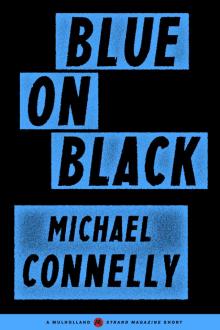 Blue on Black
Blue on Black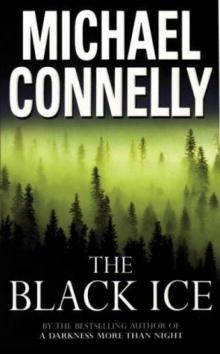 The Black Ice (1993)
The Black Ice (1993) Crime Beat: A Decade of Covering Cops and Killers
Crime Beat: A Decade of Covering Cops and Killers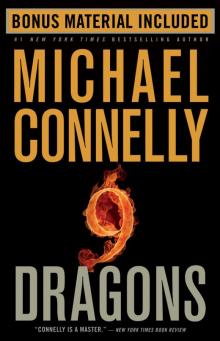 Nine Dragons
Nine Dragons The Late Show
The Late Show City of Bones
City of Bones The Overlook
The Overlook The Crossing
The Crossing The Poet (1995)
The Poet (1995) Murder Worthy
Murder Worthy The Wrong Side of Goodbye
The Wrong Side of Goodbye Harry Bosch Novels, The: Volume 2
Harry Bosch Novels, The: Volume 2 The Harry Bosch Novels
The Harry Bosch Novels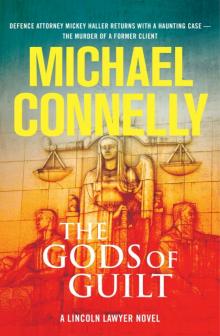 The Gods of Guilt
The Gods of Guilt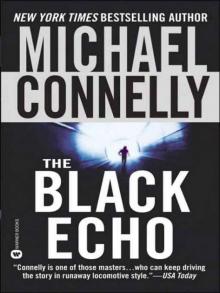 The Black Echo
The Black Echo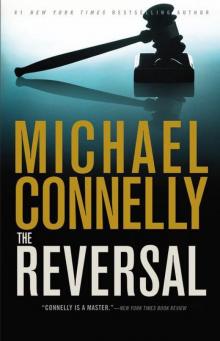 The Reversal
The Reversal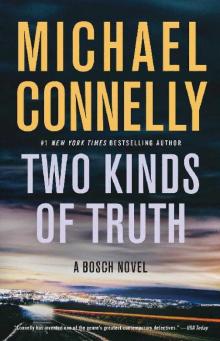 Two Kinds of Truth
Two Kinds of Truth The Best American Mystery Stories 2003
The Best American Mystery Stories 2003 The Rag
The Rag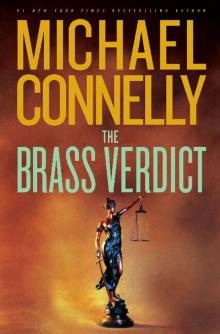 The Brass Verdict
The Brass Verdict The Black Echo (1992)
The Black Echo (1992) Switchblade
Switchblade The Last Coyote
The Last Coyote The Narrows
The Narrows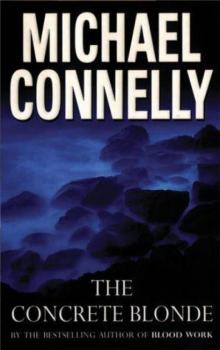 The Concrete Blonde (1994)
The Concrete Blonde (1994)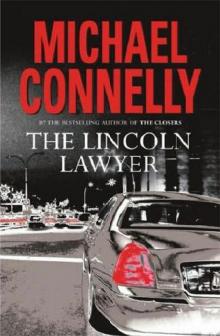 THE LINCOLN LAWYER (2005)
THE LINCOLN LAWYER (2005)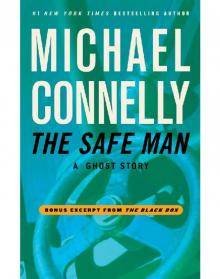 The Safe Man: A Ghost Story
The Safe Man: A Ghost Story Angels Flight (1998)
Angels Flight (1998) Void Moon
Void Moon The Drop
The Drop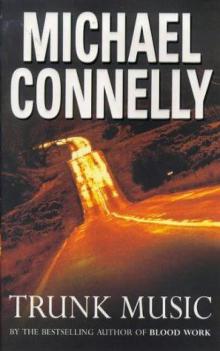 Trunk Music
Trunk Music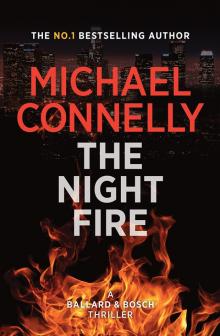 The Night Fire
The Night Fire The Black Ice
The Black Ice Chased Down
Chased Down The Closers
The Closers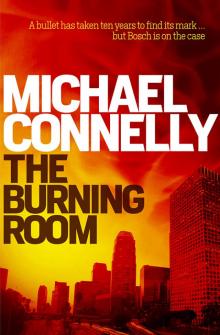 The Burning Room
The Burning Room Angels Flight
Angels Flight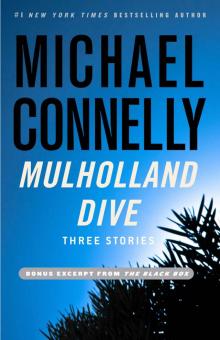 SSC (2012) Mulholland Drive
SSC (2012) Mulholland Drive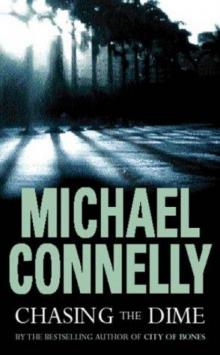 Chasing the Dime
Chasing the Dime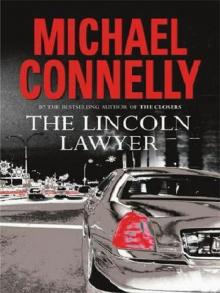 The Lincoln Lawyer
The Lincoln Lawyer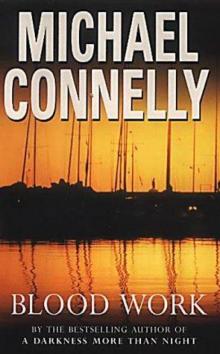 Blood Work (1998)
Blood Work (1998) Echo Park
Echo Park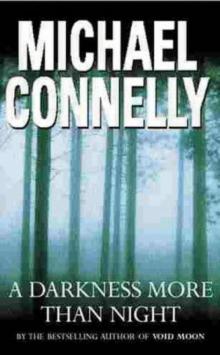 A Darkness More Than Night
A Darkness More Than Night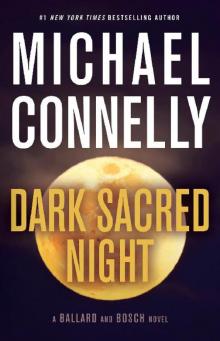 Dark Sacred Night - Ballard and Bosch #1;Renée Ballard #2
Dark Sacred Night - Ballard and Bosch #1;Renée Ballard #2 Lost Light
Lost Light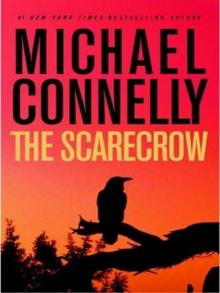 The Scarecrow
The Scarecrow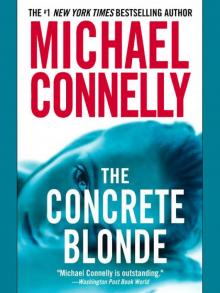 The Concrete Blonde
The Concrete Blonde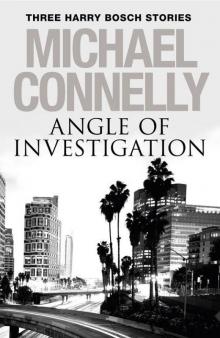 Angle of Investigation
Angle of Investigation Suicide Run: Three Harry Bosch Stories
Suicide Run: Three Harry Bosch Stories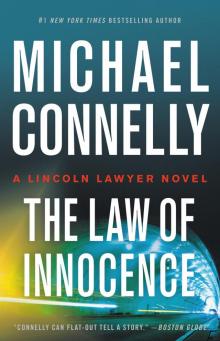 The Law of Innocence
The Law of Innocence Murder in Vegas: New Crime Tales of Gambling and Desperation
Murder in Vegas: New Crime Tales of Gambling and Desperation City Of Bones (2002)
City Of Bones (2002)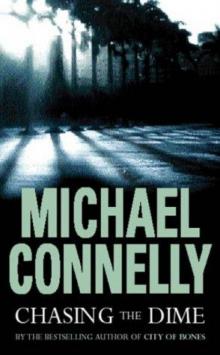 Chasing the Dime (2002)
Chasing the Dime (2002)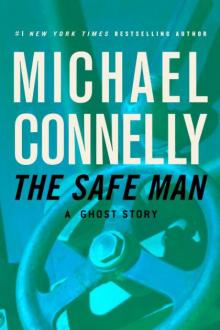 The Safe Man
The Safe Man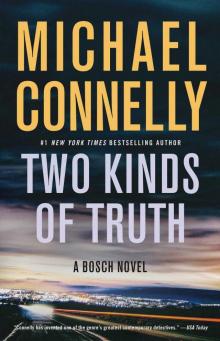 Two Kinds of Truth (A Harry Bosch Novel)
Two Kinds of Truth (A Harry Bosch Novel) Harry Bosch 01 - The Black Echo
Harry Bosch 01 - The Black Echo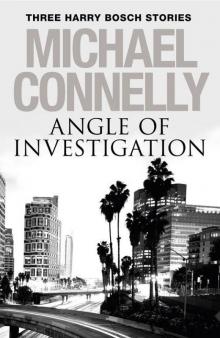 Angle of Investigation: Three Harry Bosch Short Stories
Angle of Investigation: Three Harry Bosch Short Stories The Harry Bosch Novels Box Set 1
The Harry Bosch Novels Box Set 1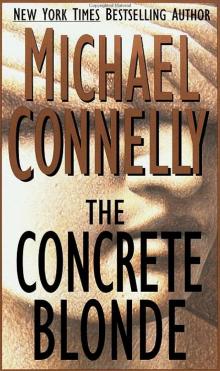 The Concrete Blonde hb-3
The Concrete Blonde hb-3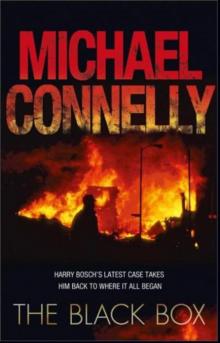 The Black Box hb-18
The Black Box hb-18 Short Stories
Short Stories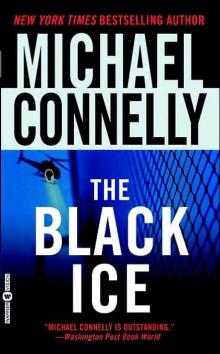 The Black Ice hb-2
The Black Ice hb-2 The Last Coyote (1995)
The Last Coyote (1995) The Gods of Guilt mh-5
The Gods of Guilt mh-5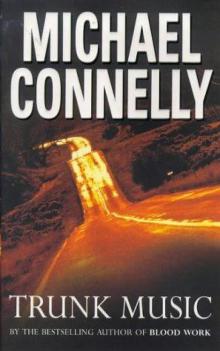 Trunk Music (1996)
Trunk Music (1996) Harry Bosch 02 - The Black Ice
Harry Bosch 02 - The Black Ice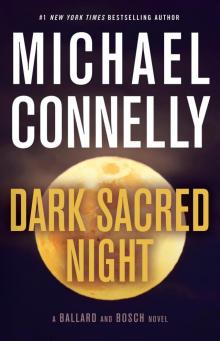 Dark Sacred Night
Dark Sacred Night Cielo Azul
Cielo Azul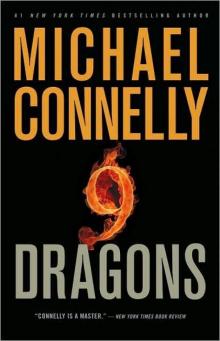 9 Dragons
9 Dragons The Narrows (2004)
The Narrows (2004) The Wrong Side of Goodbye (Harry Bosch Series)
The Wrong Side of Goodbye (Harry Bosch Series) In The Shadow Of The Master: Classic Tales by Edgar Allan Poe
In The Shadow Of The Master: Classic Tales by Edgar Allan Poe Void Moon (1999)
Void Moon (1999) Switchblade: An Original Story (harry bosch)
Switchblade: An Original Story (harry bosch) The Harry Bosch Novels, Volume 2
The Harry Bosch Novels, Volume 2 Switchblade: An Original Story
Switchblade: An Original Story The Closers (2005)
The Closers (2005) Crime Beat
Crime Beat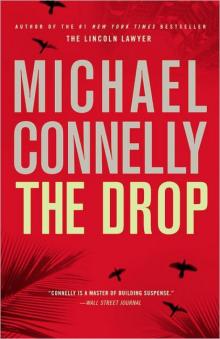 The Drop hb-17
The Drop hb-17 The Gods of Guilt (Mickey Haller 5)
The Gods of Guilt (Mickey Haller 5)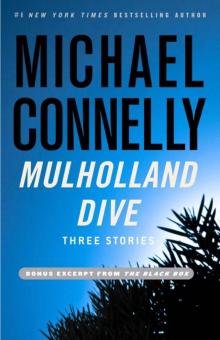 Mulholland Dive: Three Stories
Mulholland Dive: Three Stories Lost Light (2003)
Lost Light (2003)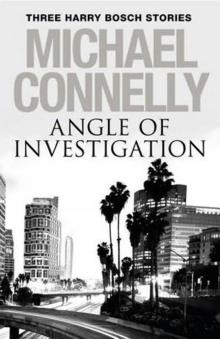 Angle of Investigation: Three Harry Bosch Stories
Angle of Investigation: Three Harry Bosch Stories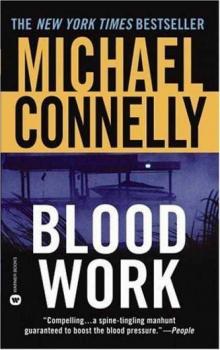 Blood Work
Blood Work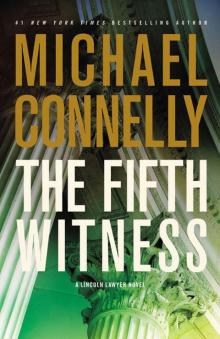 The Fifth Witness: A Novel
The Fifth Witness: A Novel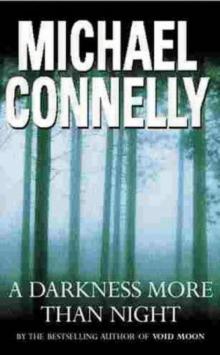 A Darkness More Than Night (2000)
A Darkness More Than Night (2000)